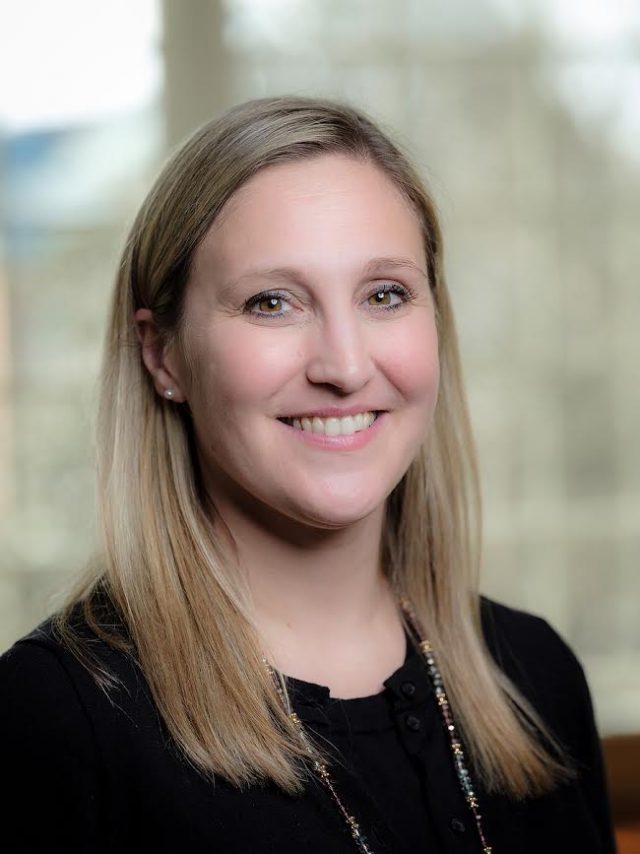Teaching Italian through Podcasting

Associate Teaching Professor of Italian, Silvia Tiboni-Craft
Course: ITA 113: Intensive Elementary Italian
Number of Students: 11
Term: Fall 2019
Duration: 15 Weeks
Instructional Designer: Brianna Derr
Question
Is it important to learn a foreign language?
Answer
Yes, because it gives you a different mindset. It’s not only about learning the language to say hi, how are you? in French, Italian, or Spanish, or German, it’s more about understanding how to see things differently. Because when you speak another language, you have to think in a different way because the language shows you also the culture behind the language.
When you get to know a different culture you also become a better person. Sometimes when we are only exposed to one culture, that’s our world, that’s what we know. But when we see that there’s something different, we might not fully like it but we can get the best part of each culture and become a mix of everything and adopt it. We become more respectful and thoughtful of the other.
Project Description
In small groups, students produced five different podcasts on different topics using the Italian Language.
Purpose
Through the creation of the five podcasts during the semester, students were able to develop and gradually improve their writing and oral skills. Also, this activity had the added bonus of creating individual portfolios for each group of students demonstrating their progression towards higher speaking proficiencies. By creating the podcasts, students were able to acquire digital literacy skills and to become familiar with contemporary topics related to Italian culture such as the Italian family, Italian food, Italian greetings, Italian hobbies and the relationship that Italian Millennials have with the use of technology. The activity offered students the opportunity to gain knowledge on everyday basic conversations through dialogues.
Learning Goals
- Develop speaking skills and build confidence in speaking a foreign language.
- Develop writing skills through reinforcing the grammatical structures studied in class by writing a podcast script.
- Develop a better knowledge of the culture of contemporary Italy.
- Build up digital literacy through the creation of a podcast.
Role of Academic Technology
The technology played a fundamental role in the success of students in this class since the creation of a podcast allowed all students to feel comfortable in speaking a different language. Even the most introverted students realized that everyone can gain proficiency in a second language and the creation of the podcast proved this to them.
Technology
- WakerSpace Podcast Room
- Blue Yeti Microphone
- Audacity
Target Skills
Learning how to create a podcast which required students to learn how to use the audio recording and editing program Audacity. Also, students learned the necessary criteria to take into consideration while they are recording their podcast–such as how to enunciate clearly and self-edit speech extemporaneously.
Outcomes & Perspectives
Showcase
Student’s Perspective
“We think that we have improved our ability to use the language and to create sentences in Italian. When we started the Podcast activity, creating the sentences was very difficult and we got nervous when we needed to talk. Now we can have conversations without much difficulty and we are more confident in our abilities of speaking Italian. We can see the growth in our Podcasts – when we listened to the first Podcast, we could hear the hesitation in our voices, but in the last Podcast, we spoke more fluently and spontaneously.”
“We liked to work on the Podcast activity because it helped us to learn how to write and speak in Italian. We now write and speak more easily thanks to the creation of the Podcasts. The biggest satisfaction we felt in making the podcast was when we spoke a lot of Italian. It showed us that we can speak and understand basic conversation in Italian”.
Instructor’s Perspective
“I really wanted to create an activity where students could gain proficiency in the Italian language and culture while also building up digital literacy skills. I think the podcast activity was very effective in offering students tangible proof of their own progress over the semester, as they were able to hear themselves improve from the first recording to the last. This activity was very inclusive because it allowed the more reserved and introverted students to blossom and thrive in learning a foreign language since the recording of the podcast required a more intimate and private setting. Ultimately, the creation of the podcast forced students to think about how to develop communication skills so that they can properly and successfully deliver their message to the audience”.
Assessment
To assess students I created two different study guides, one targeted at properly grading their writing skills and the other one at assessing their digital learning. I provided students with adequate feedback after each podcast so that they could implement them for the next recording. At the end, I also asked students to peer review their classmates’ work and to reflect on their own progress.

